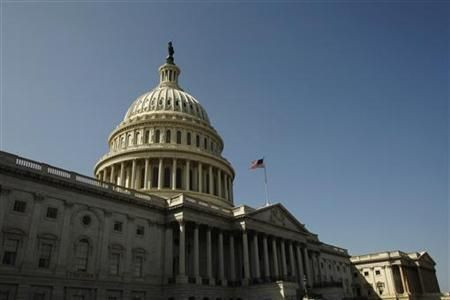
The United States Senate voted Tuesday on four amendments to the immigration reform bill, with two proposed by Republicans and two by Democrats. Both Democrat-sponsored amendments passed unanimously, while both Republican-sponsored amendments were shot down. The Washington Post wrote that the results of the votes came as no surprise, as the two which were voted down were seen as long shots for passage, while the two successful changes were expected to pass without opposition.
RELATED: New Poll Finds Most Americans Want 'Border-First' Approach, But Latinos Differ
Democratic Senator Mary Landrieu of Louisiana sponsored an amendment which added on to a 2000 law which gave children adopted by American parents automatic citizenship. Landrieu's amendment simply extended those rights to those who turned 18 before the law was passed, and loosened a mandate requiring parents to visit the child's home country before the child receives citizenship so that only one of the parents will now have to make the trip. It also clarified language regarding the rights of parents who work overseas.
The other successful amendment, proposed by Sen. Jon Testor (D-Mont.), mandates that the Border Oversight Task Force - a panel provided for by the bill and made up of border-state governors, local law enforcement, and representatives of property owners along the US-Mexico border which will recommend to federal officials how best to secure the border - include representatives from Native American tribes living on reservations on the border.
RELATED: Kansas Secretary Of State Says Immigration Protestors Outside Home Reason For Second Amendment
The amendments which were shot down by the Senate were sponsored by Sens. John Thune (R-S.D.) and David Vitter (R-La.). Thune's amendment sought to require the Department of Homeland Security to complete construction of 700 additional miles of double-layered fence along the border before currently undocumented immigrants could apply for permanent legal status. As the Washington Post notes, this would have forced the government to comply with 1996 and 2006 laws authorizing the building of the fence. The Secure Fence Act of 2006 called on Homeland Security to "provide for at least 2 layers of reinforced fencing, the installation of additional physical barriers, roads, lighting, cameras and sensors" in four separate segments making up at least 700 miles of the 1,969-mile US-Mexico. But only about 36 miles of it has been built because of the expense of the project - in 2009, the US Government Accountability Office concluded that double-layered fencing of the sort the Secure Fence Act called for cost about $5.9 million per mile, meaning the 2006 law would cost over $4.1 billion. The Washington Office on Latin America notes that this is more than the Border Patrol's entire annual budget.
RELATED: John Morton Resigns As Immigrations And Customs Enforcement Director
Vitter's amendment would have extended an earlier agreement to require Homeland Security to establish a biometric tracking system at the 30 largest international airports within six years to include every land border crossing, seaport and international airport in the country, and keep undocumented from getting permanent legal status before it was implemented.
© 2025 Latin Times. All rights reserved. Do not reproduce without permission.




